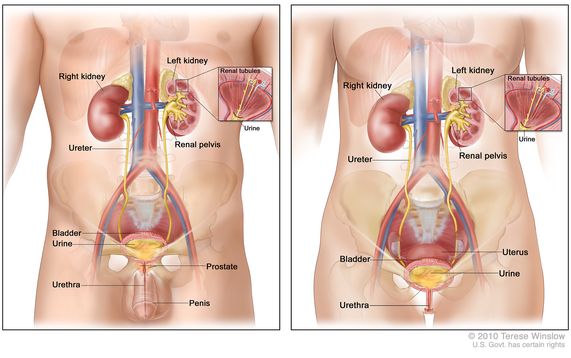urinary tract infection
(YOOR-ih-NAYR-ee trakt in-FEK-shun)
A condition in which bacteria invade and grow in the urinary tract (the kidneys, ureters, bladder, and urethra). Most urinary tract infections occur in the bladder or urethra. Signs and symptoms may include pain or burning during urination, cloudy or bad-smelling urine, blood in the urine, feeling a need to urinate often or right away, pain in the back or lower abdomen, fever, chills, and fatigue. Certain conditions, such as diabetes, hormone changes, kidney stones, an enlarged prostate, or a spinal cord injury, may increase the risk of a urinary tract infection. Other risk factors include radiation therapy or surgery to the pelvis, taking certain types of medicines (such as anticancer drugs), or using a catheter to empty the bladder. Urinary tract infections are common, especially in women. Also called UTI.
